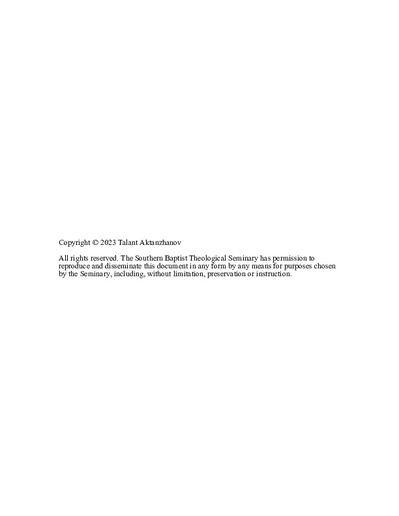| dc.description.abstract | After the collapse of the Soviet Union in 1991, the Qazaq people embarked on the journey of reinstating their authentic ethnic and cultural identity. After a thirty-year quest for true Qazaqness, many came to believe that indigenous Qazaq identity is tightly linked to the Islamic faith. Modern Qazaqs point out that before the Russian colonization, Qazaqs professed Islam. Particularly, Hanafi Maturidism prevailed alongside Sufism. However, a careful examination of historical data and archaeological findings does not coincide with the broadcasted narrative on the significance of Maturidism among Qazaqs before 1991. This research suggests that the role of Maturidism became prominent only after 1991 when it was accepted as an officially recognized branch of Islam in Qazaqstan. The arguments about the Islamic past are the key elements to state post-colonial ethnic identity. As a result, Christianity is viewed as alien or even hostile due to its association with the Russian Orthodox Church and Russia, which is a former colonizer.In seven chapters, I examine the religious history of the Qazaq people and probe implications for modern Christian missions. In chapter 1, I introduce the subject matter and outline the entire work. In chapter 2, I summarize, compare, and contrast the leading arguments posed by modern Qazaqs regarding their religious history. In chapter 3, I critically assess the argument posed in chapter 2 against historical and archaeological evidence, examining the pre-Islamic religious beliefs of Central Asian Turkic and
Mongolian tribes. In chapter 4, I examine the history and theology of Hanafi Maturidism, which is regarded as the branch of Islam to which early Qazaqs adhered. Yet, in chapter 5, I show that historically Yassawi Sufism was more popular among Qazaqs than Hanafi Maturidism, which disproves the narrative that latter was the ancestral faith of the Qazaqs. In chapter 6, I suggest opportunities for Christian missions in light of the historical narratives regarding Islam and its attachment to ethnic identity. Chapter 7 concludes this study. | en_US |

